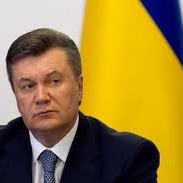Alongside the mainstream debates of the approaching Eastern Partnership Summit in Vilnius, we have Georgia, Armenia, and Azerbaijan, which keep striking a precarious balances between the EU and Russia.
The recent presidential election in Georgia can be seen as a confirmation of the country's European credentials, which certainly will be politically advantageous in the long run.
Yet as George Mchedlishvili, a Chatham House fellow, has stated, Russia is also a strong player and might be able to project its newly rediscovered conservative values to neighboring countries. In doing so, Moscow may find good listeners among a certain part of the Georgian population.
Speaking at a seminar held at the European Policy Center in Brussels several days ago, Mchedlishvili also warned that, "If the EU pushes too much with this, it may lose ground."
The balancing act for Armenia is of a different sort. David Shahnazaryan, director of the Concord Center in Yerevan, said that Russia intentionally supports anti-EU forces in Armenia. To make Yerevan choose the Customs Union instead of an Association Agreement with the EU, Moscow threatened to discontinue banking remittances from the Armenian diaspora, block economic contacts, and ultimately… change the regime.
The promise of a "hot autumn" in Yerevan by a Russian diplomat, in Shahnarazyan's words, was quite scary. All of this caused, he said, was a "dramatic U-turn of the Armenian government after 3.5 years of negotiating with the EU. It was a historical and civilizational chance for my country but no serious domestic reforms were implemented and the government is as corrupted as it ever was.”
We should keep the horizon on our minds, as Shahnazaryan painted a very gloomy picture of Russia's future strategy in the South Caucasus. He suggests that Moscow is eager to take advantage of the opportunity to drastically raise its security role in the whole region by deploying peace-keepers into Nagorno-Karabakh and gradually diminishing the role of the Minsk group in conflict resolution. According to him, Russia's hands in the Caucasus will be untied after the Sochi Olympics.
The key interest for Azerbaijan, according to Zaur Shiriyev, a lead researcher at the Center for Strategic Studies in Baku, is to prevent the integration of Nagorno-Karabakh into the Customs Union. It seems that Belarus and Kazakhstan share Azerbaijan's concerns, as would seem to be the case after Belarusian president Alexander Lukashenko's skeptical comments about Armenia's immediate inclusion into the Customs Union and his suggestion that Azerbaijan's interests should to be taken into account.
Neil MacFarlane, a professor at University of Oxford, once asked: Since each of the three countries in the South Caucasus have hard feelings toward Russia, is there any chance for better cooperation between them?
So far, it is hard to expect this, and one of the major impediments is a small piece of unrecognized territory named Nagorno-Karabakh that makes any possible institution-building in the South Caucasus extremely unlikely. Azerbaijan is not eager to move closer to the EU, but Armenia is.
In fact, Armenia’s choice was to sacrifice the prospects of an association with the EU in order to keep the Nagorno-Karabakh status quo — even though the place offers little economic value.
Arguably, among all three Caucasian states it is Georgia, which lost two “break-away territories,” that keeps moving toward Europeanization. Perhaps this can be an argument for those who claim that possession of territories is not the key to national success in a changing world. This week we will see what the 28 EU Member States and the three other Eastern Partnership countries — Belarus, Moldova, and Ukraine — have to say on the matter.










